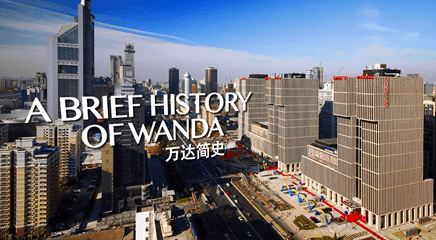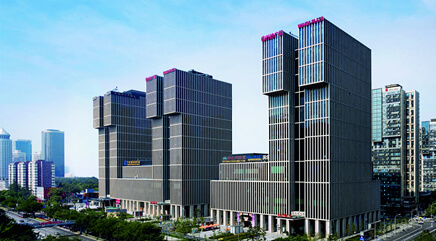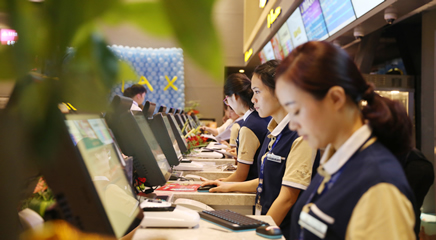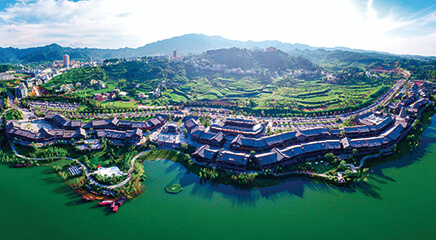This Tourist Village Is Part of An Ambitious Plan to End Poverty - ABC
24.04.2019Rustic traditional wood buildings surround a narrow thoroughfare of restaurants serving steamed fish and merchants selling rice wine.
There are young men marching up the street spruiking bull fights.
But take a closer look and you notice something a little odd.
This picture-perfect village isn't ancient at all.
It has been built from scratch in the past few years by one of China's largest private conglomerates.
And what also escapes the naked eye is its experimental role in the most ambitious and rapid anti-poverty campaign in history.
The Wanda Tourism Village in the town of Danzhai is just one small part of President Xi Jinping's goal to end poverty in China for once and for all within two years.
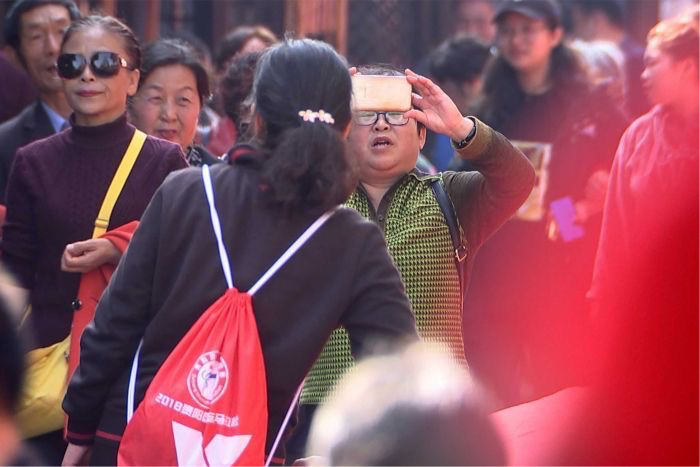
There are officially about 30 million people in rural areas still below the official poverty line of living on $US2 ($2.74) a day, and tourism projects like the one in Danzhai are an important part of efforts to target the remaining poor.
Cleaner Yang A Wo is among them.
"My husband is old. I'm 43, we don't have money, so I came here to work," she said with the help of her 11-year-old niece, who interpreted her local village dialect into Mandarin.
Every day as Ms Yang sweeps the streets of the village, tourists from China's more affluent cities walk past her, posing for selfies, devouring lunch at the restaurants and filing in to a new cinema complex at night.
The job brings in 3,000 yuan a month (about $600), and aside from income, it also brought the upheaval of relocation from her remote village in the mountains of Guizhou province to live onsite in the town.
"We have six people in our family — I'm now making money and my children are working too," she said.
Ms Yang's husband — a rice farmer — remains in the village, which is more than two hours drive away through mountainous roads.
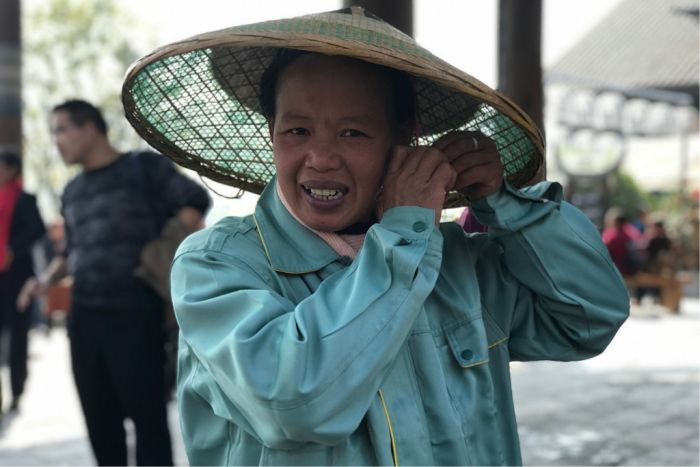
Unlike the Wanda town, its history dates back 500 years.
Farmers with water buffalo work the fields and locals live in traditional wood houses fronting on to rice paddies.
"In the past, we didn't have any income," said 66-year-old Li Yuzheng over a lunch of beef hotpot and rice in his modest main room, which doubles as the kitchen.
Up until his wife took the cleaning job, Mr Li and his family remained under the official poverty threshold.
"But in the last two years, it's getting better. Our family members can find jobs to bring in a bit of money," he said.
Guizhou province's mountains possess a rugged beauty and its ethnic minority Miao culture has long intrigued visitors from both China and abroad.
But its status as one of the country's poorest provinces is, surprisingly, seen by some as a tourist attraction.
"Often poorer places have less pollution. The air is very good, the water is clean," said Liu Mingsheng, a representative from Wanda, the massive private company that built the Danzhai tourism village.
"Rich people in the cities want to spend money to come to clean places to eat, drink and relax."
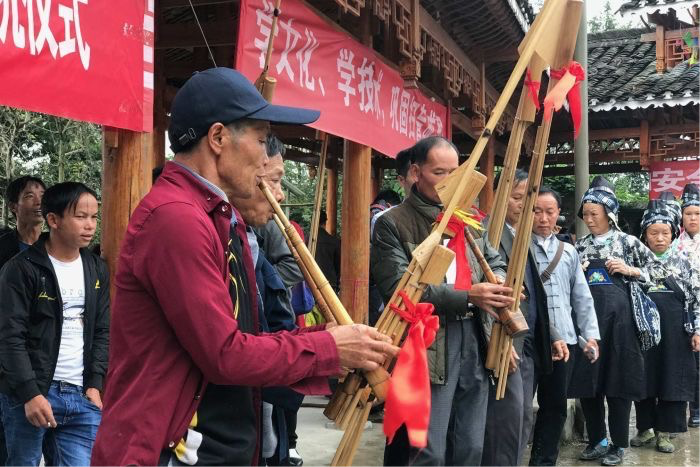
Tourist dollars stimulating local industries
Danzhai is not the only place where tourism is being used as a tool to try to end poverty by 2020, but the large investment from such a high-profile company shows how keen the private sector is to be involved in Xi Jinping's anti-poverty drive.
"Tourism helps to stimulate other industries," Mr Liu said.
"In the past, locals wanted to develop pig breeding to make money and now tourists come and eat all the pork."
Aside from job projects and small subsidies, local officials are also trying to reach the 2020 target by relocating 13,000 villagers from remote mountainous areas to new apartments in town.
"We encourage people who live in places with poor conditions that lack facilities to move to urban areas," Danzhai deputy mayor Li Ba said.
"There are better roads in town, the electricity supply, water, education services and medical care are all better."
In a village not far from the one where Li Yuzheng lives, locals said they knew of several households that had taken up an offer of relocation to Danzhai town, although some had returned back to the village and were allowed to maintain their plot of land.
Relocation of people in the most impoverished areas is a priority for China's central government, which pledged to move 2.8 million people this year alone.
Poverty alleviation experts tend to agree that the 2020 goal will be reached, but some openly question whether China's leaders are setting the bar far too low in order to make the deadline.
"I personally don't think we should take the average absolute poverty line from the World Bank as the standard for Chinese rural areas," Renmin University professor Yang Lixiong said.
"We should take the rural poverty line from middle-income countries because China has reached that level."
Professor Yang said a more realistic poverty line should be set around the $US5.50 ($7.53) per day mark, as the millions living below that mark still eek out an arduous daily life.
"Poverty changes, as do our living standards," he said.
Another expert, Gao Qin of Columbia University, has previously pointed out the target only applies to the rural poor and there's an estimated 15 million people living in urban poverty who aren't covered by the program.
But no matter how many millions remain living precariously in rural and urban areas after 2020, the narrative of the Party eliminating poverty for good is bound to be updated.
China's Communist Party uses poverty relief for legitimacy and the target is timed for the 100th anniversary of the party's founding.
State media articles regularly gush how hundreds of millions of people have been "lifted" from poverty by the Party's (belated) embrace of partial market reforms.
And for farmer Li Yuzheng at least, the change on the ground in his village is tangible.
"My family is now building a new house," he said with a grin.
"It has a beautiful hanging celling decoration.
"You don't see usually see this style in our village."
original story: https://www.abc.net.au/news/2018-12-02/wanda-tourist-village-ambitious-plan-to-end-poverty-china/10567410

